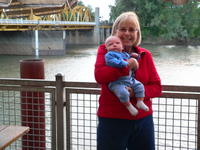by Nancy Miller, M.S., LifeWork Coach
At first glance it would seem like there are a reasonable number of people who are unemployable due to health, disability, age or motivation. Certainly there are times when a person may not be able to work because of illness or trauma, but are they really unemployable, or are they unable to work at that time? People who lack Career Management skills may find it as difficult to keep a job as to find a job. But real and perceived challenges to employment may be making it difficult for highly skilled, motivated, experienced workers to find a job. In a changing competitive work environment where time, place and workload are totally under the employer’s control, as is often the case in large corporations, a skilled experienced job seeker may feel unemployable. It is important for workers to develop strong skills, ethical work habits and the ability to work in a group, but they also need healthy work environments. In this article we will discuss challenges to employment, career professional roles and accessibility of career services.
Some common challenges to employment are lack of career self-management skills. In a fast changing world, we need to have workers that know who they are and how to adapt quickly to new situations. The ability to learn is more important than what you know. Understanding and appreciating diversity helps people work in a world economy.
To be adaptable, you need to know what your skills are, where you want to work, and how you will get there. But you need much more. A job seeker needs to be a resource person looking for employers who want to work with you rather than a job-beggar complaining about your circumstances and looking for someone to feel sorry for you. Too often people who are chronically unemployed and poor focus on their deficits rather than their strengths.
When people suffer from long-term unemployment due to poverty, disability, past failures or lack of lifestyle management, they are often considered society’s throwaways. Our jails are full of our forgotten throwaways. With the cost of keeping people in prisons, it would be less expensive to have a culture of full employment than a culture full of jails. The question is, “Is anyone unemployable?” Can we have an inclusive system of employment? Are we building support systems to have an educated, employable fully functioning society of people?
Most people have at least one perceived challenge to employment for example they are told they are too old, too young, have a mental or physical disability, too much education or too little. In his book, “What Color is Your Parachute”, career guru Richards Bolles goes so far as to say that because of your real or perceived challenges to employment, there are about three weeks of your life when you’re employable.
Developing Career Management Skills means that you need to know Who you are, What you want, and How to get there. As career professionals we often see people who want to skip to the How. Most people who come to me for career coaching start with a request to review their resume. The exception is the college career center. Students often want a quick assessment and then a list of jobs that will pay well or provide job satisfaction.
In today’s world of work, it is important to start with your strengths or natural abilities and determine what skills you want. Look at your financial needs and evaluate how you can best develop your skills. I you have the financial means, you may be able to spend most of your time in school or training, at the same time testing the waters and gaining some work experience. In other words make it real. Employers are not interested in education without some real experience. Experience helps you try out your skills to see if you really want to use them in the real world.
Career professionals have many roles in assisting people with find a path to a balance of life and work. Career professionals may be able to:
1. Teach Career Management Skills:
• Helping people to better understand who they are and what they want.
• Finding their voice for expressing their strengths
• Discovering learning opportunities to develop their skills
2. Advocate for people:
a. Help job seekers find employers who will be willing to work with them.
b. Help individuals build networks and support systems
3. Learn the skills and character to be entrepreneurs and advocate for themselves.
4. Build supportive systems in their workplaces.
5. Provide counseling to assist people who have been wounded, lost hope, have low self-esteem, etc.
6. Refer a person who has a mental disability to a professional.
7. Model a hopeful positive attitude and a sense of humor.
I believe that anyone can be employable, and everyone benefits from participating in society whether it is through paid or unpaid work.


